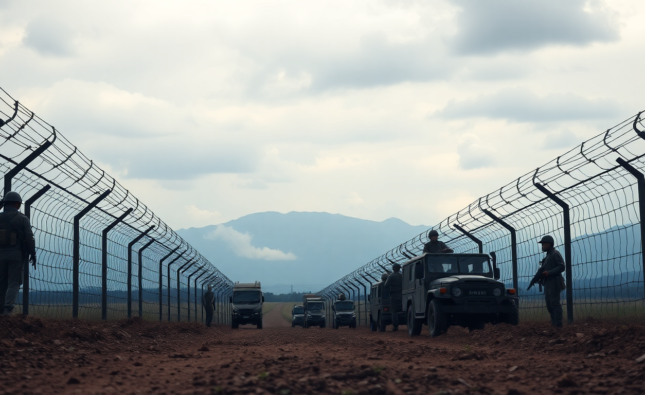
Trump Replaces Waltz as National Security Adviser, Nominates Him as UN Ambassador
In a significant reshuffle within the Trump administration, President Donald Trump has appointed a new National Security Adviser, replacing the incumbent as part of ongoing adjustments in key national security positions. Michael Waltz, previously serving as the National Security Adviser, has been nominated to represent the United States at the United Nations as the Ambassador. This leadership change signals another pivotal chapter in the administration’s foreign policy and national security strategies, as these roles play crucial parts within the geopolitical arena. Readers will explore the implications of these appointments on the Trump national security team and broader global policies.
The Significance of the National Security Adviser Role
The National Security Adviser in the United States holds a critical role, particularly under a Trump administration focused on reshaping national security strategies. The adviser oversees the National Security Council and provides direct counsel to President Trump on a myriad of security issues, including military strategy, foreign policy, and intelligence. This position’s influence is seen in every major security decision, thus making Trump’s changes in this area noteworthy.
Waltz’s Transition to UN Ambassador: Strategic Implications
The nomination of Michael Waltz as UN Ambassador by Trump comes as a strategic move. The United Nations is an influential platform where the U.S. communicates its diplomatic priorities and asserts its power in international matters. Waltz’s experience could potentially shift negotiations and realign U.S. interests, embodying Trump’s UN ambassador choice to strengthen America’s stance on the world stage.
The Broader Context: Trump Administration Updates
The reshuffling of President Trump’s security and foreign policy team aligns with continuous internal strategies aimed at bolstering U.S. strength and influence. These Trump cabinet changes indicate a sharpening of focus on security and diplomacy, elements critical to the administration’s overarching objectives. Understanding how these changes play into Trump’s foreign policy team updates is essential for both domestic and international audiences.
Impact and Future Considerations
The Waltz nomination news is not just a high-profile replacement; it marks a time of transformation in the Trump administration’s approach to diplomacy. The National Security Adviser Trump changes and Waltz’s ambassador role will likely steer significant policy shifts. Observers should watch how these appointments might alter the existing global dynamics and influence America’s foreign policy trajectory.
Frequently Asked Questions
What is the significance of the Trump national security adviser replacement?
The replacement of a National Security Adviser under Trump signifies strategic adjustments to national security leadership, potentially directing new priorities and methods in addressing security concerns.
Why was Waltz appointed as the UN Ambassador?
Waltz was appointed to leverage his expertise and influence in representing U.S. interests at the United Nations, a critical forum for international diplomacy.
How might these changes affect the Trump administration’s foreign policy?
The changes can lead to shifts in foreign policy strategy, reflecting Trump’s focus on bolstering national security and international representation.
What are the key responsibilities of a UN Ambassador?
The UN Ambassador acts as the U.S. representative in dialogues and negotiations at the United Nations, seeking to ensure that U.S. foreign policy interests are effectively communicated and pursued.
How do these appointments impact geopolitics?
These appointments may impact geopolitical dynamics by influencing the U.S.’s strategic interactions with other nations through high-level international policy-making platforms.










Comments